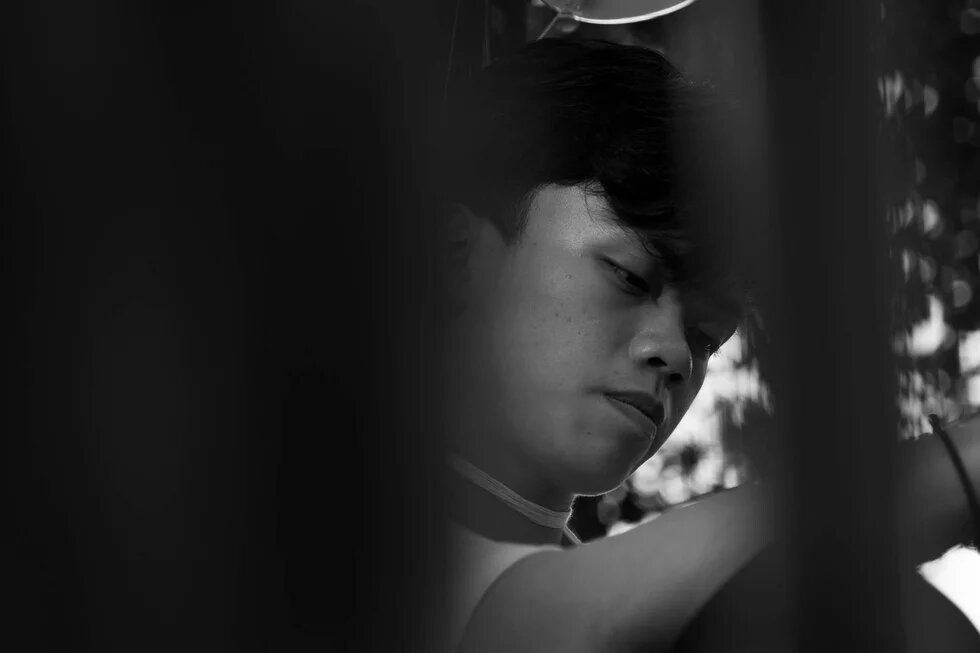Rigid gender norms in Cambodia continue to reinforce a version of masculinity that tends to stifle progress toward gender equality. These outdated norms harm both women and men, fueling gender-based violence, limiting emotional expression, and stigmatizing nonconformity. Real change begins with redefining masculinity, challenging tradition, and fostering equality at every level of society.

Cambodia is one of the countries where gender norms, conservative traditions, and cultural norms are deeply entrenched in society. From the moment we are born, we are taught about binary sexual norms, either male or female. For instance, if we are born as a girl in Cambodia, we are told to adhere to the traditional teaching of Chbab Srey (Women’s Code of Conduct), which instructs us to behave with softness, obedience, and modesty, whereas boys are taught to remain strong and to show no emotion as outlined in the Chbab Proh (Men’s Code of Conduct). These gendered upbringings in Cambodia reinforce a patriarchal system that cements the superiority of masculinity over femininity.
The rigid and narrowly defined masculinity in Cambodia’s society is illustrated through phrases like “Men being emotional or vulnerable are weak and pathetic” or “Men who cannot or struggle to provide for their families are useless”.
How do expectations of masculinity affect gender equality in Cambodia?
The myth of male invulnerability and harmful stereotypes obstruct efforts to achieve gender equality significantly. A 2010 study from the NGO Gender and Development in Cambodia (GADC) confirmed that men in Cambodia perceive that they should fulfill the role of the head of household, be the breadwinner, and dominate women. This undermines women’s capacity and restricts them from expressing their opinions or making decisions. The 2014 Partner for Prevention (P4P) study also found that 62.6 percent of men and 57.1 percent of women agree that men should have the final say in all family matters, and both men and women believe that men have more rights in the family in decision-making. Women and society generally also tend to tolerate and support toxicity in men’s behaviors, which often leads to gender-based violence against women.
Many people believe it is acceptable for a husband to hit his wife in certain situations.
Since men are viewed as tough, many people agree that “it is normal for men to be violent when they are angry.” This is echoed in a study by The Good Men Campaign, which showed that 88 percent of Cambodian men agreed with that statement, and 40 percent of them are willing to use force against another person when they feel insulted. Moreover, it was found in a report published by the Cambodian Ministry of Women’s Affairs (MoWA) that many people believe it is acceptable for a husband to hit his wife in certain situations, such as if she goes out without informing him, neglects the children, argues with him, refuses sex, or does not cook well. Even worse is that most women tolerate such violence to keep the family together.
What are the consequences resulting from addressing harmful male gender stereotypes?
Women’s rights in Cambodia have come a long way, with at least 16 international organisations and local non-governmental organisations committed to the pursuit of women’s rights and striving towards gender equality. However, we can also observe a pushback of Cambodian structural discrimination and harmful male gender stereotypes, both in the family as well as in social and economic structures.
First, familial tensions arise when women speak up against traditional social norms that restrict them and are far more tolerant of men. Women are taught to be a “good girl” by doing household chores, getting married, having children, listening to the advice of male family members, keeping their own ideas to themselves, and caring to remain beautiful. For instance, as shared by the Report on Virginity Culture in 2021, “if a girl or a woman can maintain their virginity until they get married, it is a reflection of their good and considerate behavior and respect for their parents. [....]”. If women don’t stay virgins before marriage, their families often blame and shame them, saying they bring dishonor and hurt the family’s reputation.
As for men, there exists a strong pressure on them to adhere to social expectations of masculinity or to be a “real man”, even when they do not necessarily support them. Men are being called “cowards” when they are more compliant and respectful to their wives, implying they are afraid of their wives, which they are not supposed to be; instead, men have to be tough, controlling their wives. One participant in the P4P study shared that:
He says that I should obey him because he is my husband and the head of the household. [.....], he believes he could do anything, and when I do not obey him, he curses me out loud. [......]
Second, there is also social and political backlash both to women speaking about their rights and to men behaving differently from social norms. Whoever identifies as a feminist or women’s rights activist is perceived as opposition to the government. Sum Dany, a member of the Cambodia Young Women Empowerment Network (CYWEN), shared that
My neighbors think that since I am a feminist activist, I fight the government. They think I also play a role as an opposition party activist. [....] My family thinks that gender issues are also political issues. They tell me, ‘It is for men who have high status to take on that role of being involved in politics. [...].
Third, economic factors also contribute to the perception among men that gender equality entails a loss of privilege and is a threat to their power and status. They have to live up to the expectation of being a primary breadwinner. Failure or inability to adhere to this assignment is not considered a “real man”, and respect is lost for them. A married urban man shared:
If his wife acts as the income earner and the man just stays home doing the dish washing and spending his wife’s salary on drinking, he is not considered a real man. He [is considered to be] a useless man in society.
The progress of Cambodia’s gender equality movement depends on collective engagement
What are the ways forward regarding gender equality in Cambodia?
With the development of the women’s rights movement in Cambodia after the UNTAC-sponsored elections in 1993, there has been substantial progress compared to the Cambodia of the past. Thanks to efforts from the government, non-governmental organisations, gender advocates, and other civil society agents, the teaching of Chbab Srey (Women’s Code of Conduct) has been eliminated from the school curriculum since 2007. This came after years of advocacy and a nationwide plan to combat violence and discrimination against women. However, these norms are still strongly rooted in Cambodian society, and it will take more effort to change.
At the grassroots level, for all individuals, families, and society, it requires everyone, with all diverse gender, to campaign in solidarity to advance gender equality. The progress of Cambodia’s gender equality movement depends on collective engagement, with men playing an essential role alongside women. Therefore, everyone’s involvement is essential to transform harmful gender stereotypes.
At the policy level, a variety of initiatives can be launched, for example, through the integration of gender studies in the school curriculum to counter traditional gender norms and roles. Everyone has a role in transforming harmful gender stereotypes into positive masculinity and femininity. Below are examples that could promote positive masculinity and advance gender equality:
| Instead of believing that: | Promote this: |
| Men being emotional or vulnerable are weak and pathetic | Men being emotional or vulnerable is a sign of strength. Being emotional is being human and intelligent. |
| Men who cannot or struggle to provide for their families are useless | A man’s worth is not only defined by income. He can support his family emotionally, mentally, and physically, which is just as valuable as financial support |
| Men who stay at home are not real men | Temporarily stay-at-home dads/husbands are showing strength by prioritising care, love, and responsibility when it is needed in the family |
| A man who is not physically strong is not a man | Masculinity is not only about muscles. Strength comes from other places, like empathy, social intelligence, character, and resilience |
| It is normal for men to be violent when they are angry, and it is okay for them to lash out at others | Anger is a valid emotion, but violence is never acceptable. Real men take responsibility and learn healthy ways to manage emotions |
If the change in gender relations is put on hold, what’s at stake?
In recent days, young women, particularly those from the Millennial and Gen Z groups, have gained greater access to education and entered the job market at all levels. However, in many cases, they have to work twice as hard - or even more - than men to attain the same positions, while men often reach those roles without the same level of effort. Despite this, young women enjoy those opportunities, and it economically empowers them and strengthens their independence. Meanwhile, we can observe that some young men have not kept pace with this shift, particularly in changing their attitudes and behaviors. This results in a growing gender dissonance, which must urgently be addressed to ensure that men can keep up with the rapid societal changes of gender realities.
What do we do with the boys?
Rather than raising the question: “How to empower women and girls?”, it is also crucial to find the answer to this question: “What do we do with the boys”? Defining and developing early childhood education policies is essential to foster mindsets in favor of gender equality in people from a young age. Additionally, there is also a need for policies that promote openness and provide structural support for young couples to maintain a gender-just work–life balance.
Among younger, particularly urban, middle-class women, we observe a noticeable rejection of traditional practices, such as arranged marriages with men who maintain conservative and traditional gender roles. Even with the freedom to choose their partners, many of these women struggle to find the “ideal Cambodian man” who matches their expectations for an equal or at least better-balanced partnership, particularly when it comes to shared responsibilities like child-raising and housework. Hence, Cambodia still faces a long journey toward achieving gender equality and justice, and a crucial part of that path involves transformation to positive masculinity.


